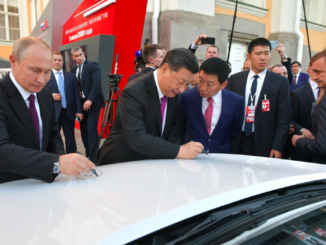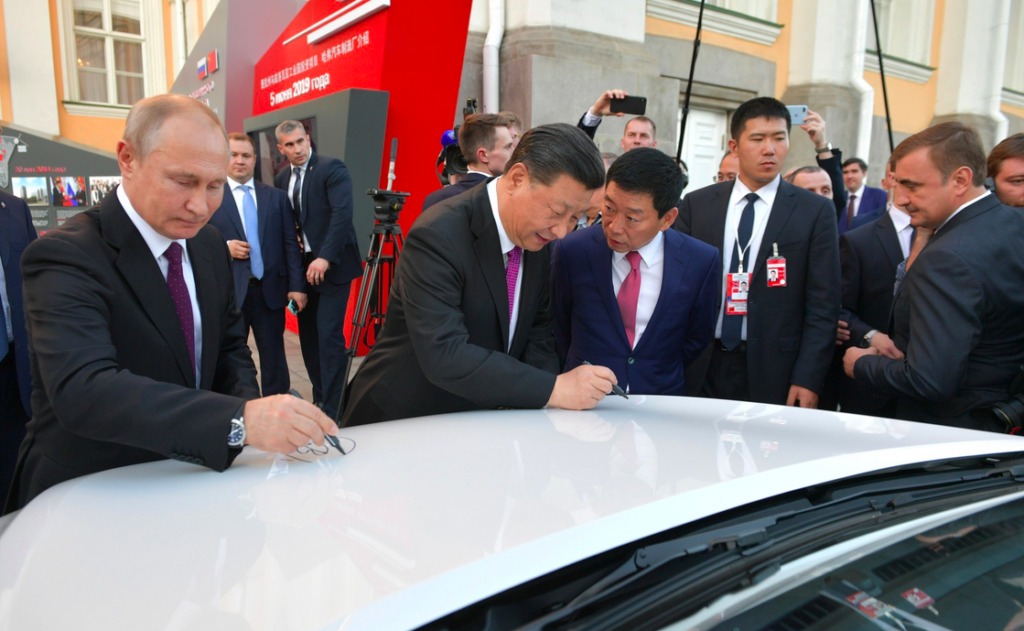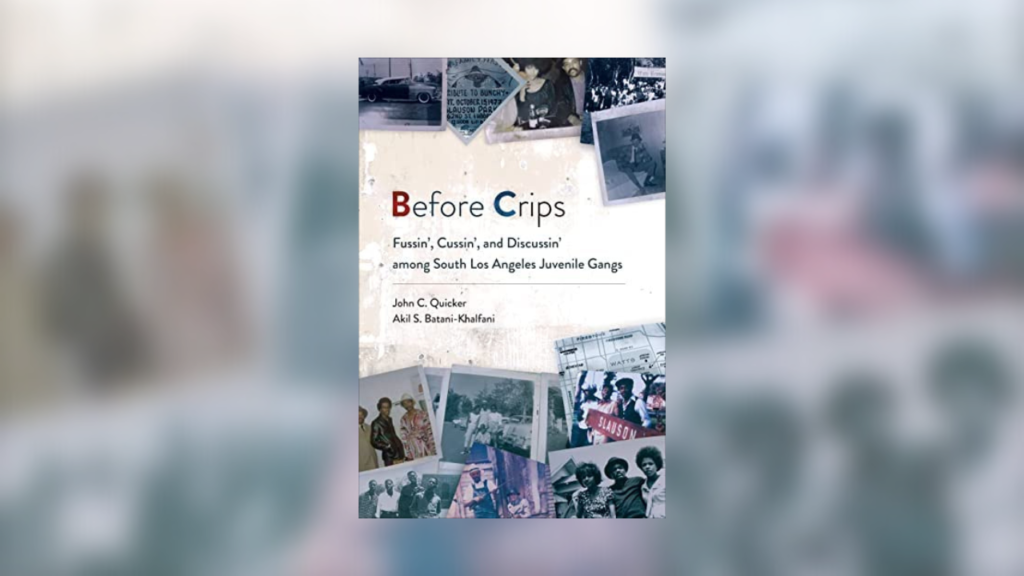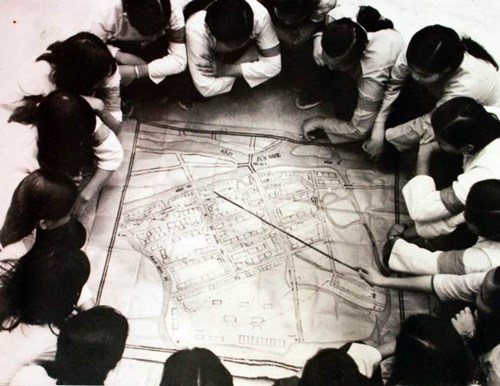
The Black Agenda by Glen Ford (OR Books: New York and London, 2021)
Tomorrow, July 28, marks the 1-year anniversary of the passing of Glen Ford, founding executive editor of Black Agenda Report (BAR), an independent online publication that aims to provide “news, commentary and analysis from the Black left.”
Before Ford died at 71, he was able to publish a selection of his articles as a book, The Black Agenda.
While reading, I highlighted words and phrases Ford invented to help burn the impact of injustice into people’s minds. If he wanted to, he could have published a dictionary of the new vocabulary. It is that numerous.
He made clear in his writings it was not enough to be against injustice. One had to explain it in a way so people would be inspired to organize a liberation movement. In Ford’s case, he was trying to encourage poor and working-class Black people to struggle against the “Black misleadership class,” a group of turncoat Black people who had aligned with the ruling class. Ford viewed former U.S. President Barack Obama and many Black members of the U.S. Congress as working against the interests of the 48 million people of African descent in the United States and the close to 2 billion Africans throughout the world.
Take, for example, what Ford wrote in a 2020 article left out of the book. In it, he compared the relationship the Black misleadership class has with white capital to a toxic marriage one would see in a soap opera. He dubbed that fictional soap opera, “The Black and the Powerless,” in a play on the long-running CBS mid-day drama, “The Young and the Restless.” I cackled at his wit.
“Black misleadership class” has been associated with Ford. But he and other BAR contributors only popularized it, he said. Writer James Warren first used the term in 2005 in Black Commentator, another publication Ford co-founded before leaving to launch BAR with others (page 56).
In advocating for the 72 percent of the Black population that is poor and working class, he wrote in a piece published a few months before Obama was elected (page 33):
Slow-acting Katrinas in the form of gentrification are what Black folks can expect—and must find ways to resist and defeat—from the ruling Lords of Capital for the foreseeable future, Obama or no Obama. There will be no “age” named after the handsome, articulate, and oh-so-slick but otherwise ordinary corporate candidate for president who used to call himself Barry. This is the Age of Katrina, and Barry is part of the problem.
‘Bifurcated Brain’
A child of communists, Ford grew up surrounded by his Irish mother’s door-to-door grassroots activism in New Jersey and his father, the first Black host of a non-religious television program in Georgia. In a 2013 interview with journalist Paul Jay, Ford said those experiences aided in developing his “bifurcated brain.” That might explain Ford’s ability to merge the art of storytelling with a revolutionary conscience.
“Glen Ford is irreplaceable not just because his writing was so sharp and so clear,” BAR co-founder Margaret Kimberley wrote in the foreword to the book (page xii), “but also because his politics were so clearly of the left. He was not a liberal, or a Democrat, or a progressive. He was a Marxist, and he brought that ideology to all that he did. In doing so he revealed important information that is regularly disregarded or disappeared. He also had a talent for making every issue understandable and making connections with the reality of people’s lives.”
After stints in the U.S. Army, on the radio in rural Georgia, writing for the daily newspaper of the Communist Party of the United States, and helping out the Black Panther Party’s Jersey City chapter in New Jersey, Ford led and/or launched several efforts in radio, TV, print, and online. The most memorable feat appears to be the 2006 co-founding of Black Agenda Report.
Blueprint for Liberation
In Ford’s writing, everything is minced and fried up for consumption. Once I start reading one of his articles, I follow it all the way, tickled at the imagery he uses and his climactic endings. For example, chew on phrases like:
- Black Prison Nation (referring to the 2 million incarcerated Black people)
- Black American Gulag (referring to U.S. policies that led to mass incarceration)
- ObamaL’aid (like Kool Aid)
- Bernie-bear (referring to U.S. Senator Bernie Sanders)
- Old Man Biden (referring to U.S. President Joe Biden)
- Great Corporate Black Hope (that’s referring to U.S. Vice President Kamala Harris)
Ford’s depth of analysis and the breadth of topics he analyzed is awe-inspiring, too. How could someone know so much about… so much? Because the man did not get distracted. Plus, he was an internationalist. And so, Ford could go from the U.S. invasion of Iraq to the surge of Western-armed jihadists into Syria, and the NATO invasion of Libya, the corporate takeover of Black Lives Matter, reparations for Black people, Hurricane Katrina’s impact on Black people, the Detroit hijacking of pensions, the origins of “Thanksgiving,” billionaires and millionaires running for elected office, Occupy Wall Street, and much more.
Journalists like Ford are hard to find. Not only does it not pay to tell the truth, some journalists risk their lives doing so (check out Mumia Abu-Jamal, Julian Assange and Shireen Abu Akleh). And so, Ford led a humble existence, as one of his friends told me.
In the final piece compiled for The Black Agenda, Ford paid tribute to George Floyd, the Black man whom Minneapolis police murdered in 2020. It led to the largest popular uprising in U.S. history. But because of his political training, Ford included a blueprint for liberation in searing language (page 326):
Community control is how we build socialism within the framework of people’s right to self-determination—the principles by which, along with solidarity, we decolonize and dis-imperialize our world. “Power to the People” means disempowering the capitalist and white supremacist. Everything else is a diversion, conjured up by the Kente cloth-soiling Black misleadership class in service to their bosses, the oligarchs. They have betrayed us repeatedly and laughed at our willingness to trust them yet again. In George Floyd’s name, let this be the end of it.
May more people be inspired to do the honest journalism Ford modeled.
Julie Varughese is editor of Toward Freedom.









